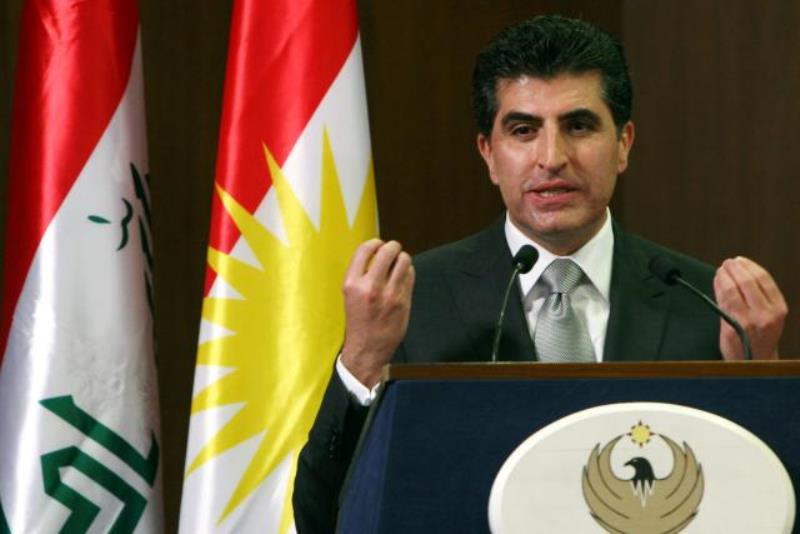Erbil – Kurdistan Regional Government Prime Minister Nechirvan Barzani accused the federal government in Baghdad of not committing to any of its constitutional obligations towards the region.
Speaking to Voice of America (VOA), Barzani said that Kurds expect a lot from the U.S. and the principles Washington is seeking are present in Kurdistan. He added that the Kurdish society includes all Iraqi components and sects living together in peace and without any problems.
The PM also noted that citizens of Kurdistan are looking forward to working with the Trump administration and hope to enhance and strengthen the relations further more.
The PM said that Kurdish fighters are on the frontlines against terrorism. He explained that over two years of resistance against ISIS terrorists, the Kurdistan region had over 1600 martyr and nine thousand injured fighters.
Barzani said that the Peshmerga, would not have made advances without aerial backing from the U.S.-led coalition against ISIS. “This would not have been possible without international support, especially from the United States,” Barzani said.
Barzani warned that U.S.-led operation to oust Islamic State militants from Mosul will not eliminate the organization’s presence in Iraq.
“ISIS will not be eradicated from Iraq by a military operation,” Barzani told VOA.
“It may well lose cities like Mosul and Raqqah, but it will remain as an ideology and organization,” he added.
The operation for the west side of Mosul is expected to be more complicated, as it is crisscrossed by streets too narrow for armored vehicles and is more populated than eastern Mosul, Barzani said.
“The military operation is going slow now because we don’t want more civilian deaths,” he said. “The plan is going slowly and is supervised by the United States, while the Iraqi forces are a part of it.”
Barzani told VOA that a continuing sectarian divide in Iraq will allow ISIS to thrive in some form.
“What’s important to realize is that the problem in Iraq is political, not military,” he said, adding that: “ISIS is created in this country. It is the consequence of incorrect politics that has been in place for years in Iraq. Until those political circumstances are resolved, I doubt ISIS will end in Iraq. Until now, we don’t see a single step made in Iraq to resolve those problems that led to ISIS.”
The PM stressed that ISIS is not accepted in Kurdistan like the rest of Iraqi areas, and people in the region reject such an extremist thinking. But he admitted that the terrorist organization poses a threat to Iraq, and if Iraq isn’t stable that would have its influence on Kurdistan as well.
Barzani said that Kurdistan faced several struggles with the budget, adding there are many arguments with the government in Baghdad regarding that issue.
Kurdistan’s priorities can be solved when the political matters are resolved. He added that both Baghdad and Kurdistan had cooperated together especially when the Iraqi Army was allowed to enter the region, which was a difficult decision for the Kurdish government. But, Barzani went on to say, they have a common enemy which made it compulsory for both governments to work together.
Barzani presented his ideas for a solution to solve issued with Baghdad saying that dialogue should begin. He added that Baghdad still considers itself as the central city, stressing that the government there hasn’t implemented any of the new laws concerning the oil, gas and resources of Kurdistan region.
He reiterated that Iraq deals with Kurdistan as one of its districts, something which is not acceptable.
The PM compared the Peshmerga forces to the Popular Mobilization Forces that had been identified as an official force. He wondered why Peshmerga hadn’t been recognized yet as part of Iraq’s defenses.
